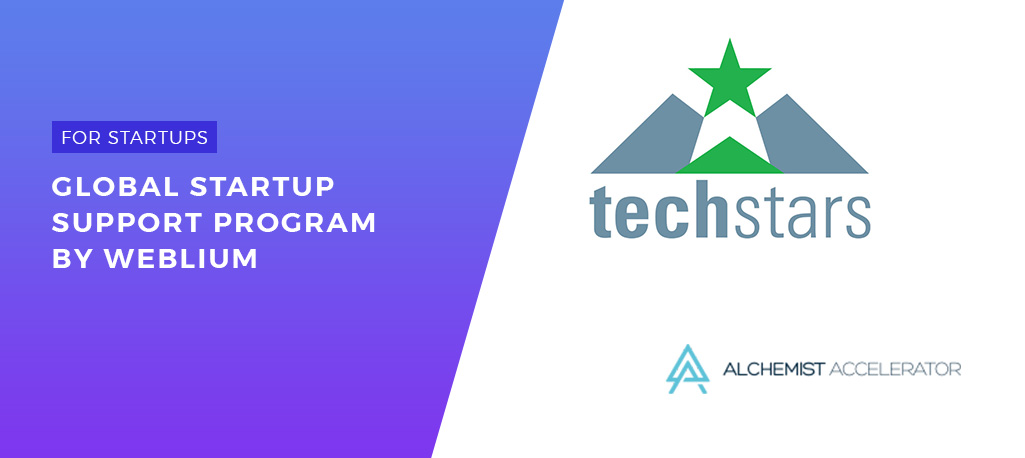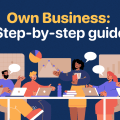
Interview with Conector: How to Join and Succeed in Startup Programs
Are you considering to join the accelerator program but have no idea where to start? You’re not alone with this problem. We asked Bernardo Martinez from Conector, one of the biggest Spanish startup accelerator, about the most common challenges and the ways to succeed in startup programs. Bernardo Martinez gladly shared his experience and recommendations.
The material is based on the interview with Bernardo Martinez, business development manager at Conector.
Contents
What are the most common problems for startups? How can startup owners overcome them?
I would say, it’s possible to define three basic areas of problems for startup owners:
- they work to get a great team of founders. However, two or three founders don’t turn a business into a scalable growing company, and a startup owner should always keep that in mind
- the entrepreneurs focus on their core business and forget about new opportunities. They might see an opportunity to make some revenue and in the long term, it can bring negative impact to their initial project
- many startups have a great product or service but they don´t know how to get customers. Therefore, they need to find the right value proposition. Personally, I think that this is the biggest challenge.
Each startup is a different world of dreams, knowledge, and ambitions, so there is no one solution for each case. But an entrepreneur should find the solutions that fit the startup goals. By determining the clear goal, it gets easier to find a mentor and investor who are the solution for the startup financial problems.
What startups have more chances to get accelerated? What are the main requirements for a startup to participate in the acceleration process?
One of the main requirements for us as an accelerator is that the company has already established a legal entity. We look for companies that are seeking support, and they are still in the early stage of running a business.
Another important thing is that business has a great team capable of working under different conditions. It’s also great to have a good advisory team so that a startup gets enough support to keep growing and developing.
Next, an invertible market. If the market is small, there would be no return for the angel investors. Therefore, we would decline the applications that don’t fall under this condition.
At Conector, we pay huge attention to a minimum viable product and some metrics that show the potential to accelerate the project. It goes without saying that the product or service should be of excellent quality as we want to help the companies that really deserve that.
How to succeed in the acceleration process? What should be done by the company to get the maximum out of the acceleration?
First of all, the entrepreneurs need to know why their startups need to accelerate and to be sure that they are ready to speed up this process. If they have the answers to these questions, they can move forward. It’s important to conduct thorough research to see which startup programs best suits the company’s needs as accelerators are not the same.
They have to talk to as many accelerators as possible to find the one with the right team of mentors. To conduct this research, they can check what kind of startups the accelerator has already helped, for example.
How much time does it take for a startup to find investors on average?
We work for 5 months to speed up the startup to their maximum. At the end of the program, we present the companies to investors in a Demo Day.
One of the most important things is to convince mentors to invest in startups. If a mentor invests in the company, it is easier for them to find investors.
How can you describe an ideal process of creating a startup? Are there some obligatory steps?
There is not an ideal process for every startup. Each company has to find its own way to feel comfortable creating a business. However, they need to have a clear vision of the problem to be solved and why this solution is better than competitors’. Also, they need to make a minimum viable product with the least minimum investment.
Why does a startup need to have a website, not just a Facebook or Instagram page?
When we hear about a company, the first thing we do is checking its website. If the company doesn’t have one, it misses the opportunity of communicating with the potential customers or business angels.
All startups must have their own websites. FB and Instagram are not enough for an ambitious company.
Does the home country of a startup matter if the company works on the Internet?
If the company has a global vision and ambitions, the country where it begins is not a problem. It is more critical to see that the founders are willing to go worldwide.
What is more important and effective for a business based in Europe: to move to the Silicon Valley with a high concentration of the technology business, potential partners, and investors, or to use the economic advantages of working in the European region?
I would try different approaches to find what is better. First, I would work my way in Europe. There are plenty of opportunities to gain market and develop a great product or service. Furthermore, there is a new wave of venture capitalists willing to find great opportunities in Europe.
Once done that, I would make step two, which could be either Silicon Valley or Asia. Countries like South Korea or Japan are looking for entrepreneurs around the world, so this could be a great choice for companies that did not find support in Europe.
Silicon Valley is an option to consider, but it is quite expensive. Besides, the competition is fierce there, and that creates a burn of investment money that sooner or later will explode.
What are the latest trends in startup projects?
What are the 5 most profitable and popular small business industries to consider for those who are just thinking of creating a startup?
Well, there is a lot of hype on Big Data and Artificial Intelligence, but I don’t see many good projects in this industry.
There is a lot of discussion about Bitcoin and cryptocurrencies. Again, I see a lot of people talking about it, but not a clear path to go.
These considerations bring me to ICO (Initial Coin Offering), but you need to be careful in this area. Learning the processes in this industry and finding the right entrepreneurs is not easy, but it deserves the efforts.
I am still a believer in Marketplaces, as there is a lot of work to do there. Logistics also has many opportunities as e-commerce is becoming a commodity.
Finally, if you ask me about the 5 most profitable industries, I really believe in profitable companies rather than industries. I would look for companies that can make something different in a way that cannot be copied either by Google or Facebook.



